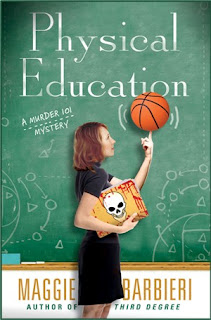Real Things that Have Happened to Me (or that I’ve Done)
In another attempt to avoid working last week, I reflected on a few real things that have happened to me or that I’ve done. I’ve decided that we’re going to call this blog, No Regrets Wednesday here at the Stiletto Gang.
In another attempt to stretch out the work avoidance for as long as possible, I then decided that I would sit down and list these real things that have happened to me or that I’ve done to see if anyone has had similar experiences and if you would like to share one or two similar things so that we could all have a good laugh.
Here goes:
1. I once got in a cab in New York City when I was in my twenties and after I told the cab drive where I wanted to go, he said, “Wow, you’re beautiful. After blushing from the tips of my toes to the top of my head, I confessed that no, I was not a model and thanked him for the wonderful compliment. He said, “It’s ok. I didn’t really mean it. I ask every woman who gets in my cab so I can get a big tip. You’re ok looking, though.”(He did not get a big tip.)
2. I once had to open up and then relinquish a foiled-wrapped sandwich in the security line at JFK because nothing says terrorist like chicken salad on a roll and an almost middle-aged textbook editor. They did not confiscate the sandwich, but I didn’t feel like eating once I got on the plane.
3. I once saw a woman walking in Times Square with her entire skirt tucked into the back of her underpants.(My mom can vouch for this.) I stopped her, made her stop talking on her cell phone, and told her that about three million Japanese tourists had just seen her bootie and many had taken pictures. She thanked me and went on her way, happy that there was a woman in the world who was brave enough to tell another that her behind had been displayed on the Jumbotron outside of the Good Morning, America, studios.
4. I once wore my husband’s boxer briefs to a job interview because I was too lazy to do my own laundry.
5. I once told my kids that I was getting my own apartment. (Actually, that happened more than once.)
6. I once laughed so hard that I wet my pants. And my husband’s pants.(In the interest of full disclosure, I was nine months pregnant with child #1, who turns 18 today!)
7. I once got lost driving home from a grocery store in a neighboring town.
It took me ninety minutes to find my way back. Yes, the ice cream had melted.
8. I once told a client that he had to buy what I was selling because I was nine months pregnant (see #6) and ‘baby needs a new pair of shoes.’It worked.
9. I once wore pajama pants to class because I hadn’t washed any real pants. I know this is commonplace now but back in 1865, it was positively scandalous. Although I got a talking to from the dean of students, I also got a date with a really cute guy who I married five years later.
10. I once ate an entire bar of Velveeta cheese. I then proceeded to realize, almost immediately, that this was a really bad idea.
Ok, so it’s No Regrets Wednesday at Stiletto.
Fess up, Stiletto faithful.
Let me know one thing you’ve done that you’ve carried around in your heart for all these years, unable to reveal.
I’m counting on you.
Maggie Barbieri

